- Over 1 million successful rentals
Car Hire Canada
Save time and money. We compare the offers of car rental companies in Canada on your behalf.
- Free cancellation Up to 48 hours prior to the scheduled pick up time
- Best price guarantee Have you found a better price? Let us know and we will make you a better offer.
- 24000+ pick-up locations Locations around the world
Compare Car Hire
Carrentals.co.uk offers simple and straightforward car hire comparison services. We don't add a penny to your quotes!
Car rental offers in Canada
Whether you're looking for a small rental car or a station wagon for the entire family, we will always have a suitable vehicle for the lowest price. Below are some examples from our selection in Canada.

-
U-Save Auto Rental From£ 19 /day

-
ACE Rent A Car From£ 45 /day -
Europcar From£ 66 /day -
Green Motion From£ 88 /day

-
Green Motion From£ 61 /day

-
Green Motion From£ 47 /day

-
Routes From£ 15 /day -
Europcar From£ 15 /day -
Green Motion From£ 17 /day

-
Routes From£ 15 /day

-
Routes From£ 17 /day -
Alamo From£ 31 /day -
National Car Rental From£ 35 /day

-
Economy Rent a Car From£ 17 /day -
Green Motion From£ 21 /day -
Sixt From£ 26 /day

-
Dollar Rent a Car From£ 18 /day -
Thrifty From£ 19 /day -
Hertz From£ 23 /day

-
Green Motion From£ 18 /day

-
Routes From£ 23 /day

-
Dollar Rent a Car From£ 19 /day -
Thrifty From£ 19 /day -
Hertz From£ 23 /day

-
Green Motion From£ 22 /day

-
Routes From£ 15 /day -
Europcar From£ 15 /day

-
Routes From£ 15 /day -
Green Motion From£ 17 /day -
Avis From£ 29 /day

-
Dollar Rent a Car From£ 16 /day -
Thrifty From£ 18 /day -
Hertz From£ 35 /day

-
Routes From£ 15 /day

-
Routes From£ 15 /day -
Green Motion From£ 19 /day

-
Routes From£ 17 /day

-
Routes From£ 16 /day -
Sixt From£ 28 /day

-
Dollar Rent a Car From£ 16 /day -
Hertz From£ 17 /day -
Thrifty From£ 18 /day

-
Hertz From£ 23 /day -
Thrifty From£ 30 /day -
Dollar Rent a Car From£ 30 /day

-
Routes From£ 13 /day -
Budget From£ 37 /day -
Alamo From£ 112 /day

-
Routes From£ 13 /day -
U-Save Auto Rental From£ 19 /day -
Right Cars From£ 20 /day

-
Routes From£ 17 /day -
Dollar Rent a Car From£ 23 /day -
Thrifty From£ 26 /day

-
Routes From£ 17 /day -
Budget From£ 42 /day -
Alamo From£ 116 /day

-
Economy Rent a Car From£ 17 /day -
Green Motion From£ 17 /day

-
Green Motion From£ 17 /day -
Europcar From£ 26 /day -
Alamo From£ 31 /day

-
Dollar Rent a Car From£ 24 /day -
Thrifty From£ 27 /day -
Hertz From£ 32 /day

-
Economy Rent a Car From£ 17 /day -
ACE Rent A Car From£ 26 /day -
Budget From£ 29 /day

-
Economy Rent a Car From£ 21 /day

-
Economy Rent a Car From£ 17 /day

-
Green Motion From£ 21 /day

-
Thrifty From£ 22 /day -
Dollar Rent a Car From£ 26 /day -
Alamo From£ 34 /day

-
Green Motion From£ 21 /day

-
Thrifty From£ 22 /day -
Dollar Rent a Car From£ 25 /day -
Alamo From£ 31 /day

-
Thrifty From£ 25 /day -
Dollar Rent a Car From£ 26 /day -
Alamo From£ 48 /day

-
Routes From£ 22 /day

-
Hertz From£ 29 /day

-
Green Motion From£ 23 /day

-
Routes From£ 25 /day -
Dollar Rent a Car From£ 29 /day -
Thrifty From£ 30 /day

-
Budget From£ 27 /day -
Avis From£ 34 /day

-
Thrifty From£ 28 /day -
Dollar Rent a Car From£ 29 /day -
Sixt From£ 30 /day

-
Thrifty From£ 28 /day -
Dollar Rent a Car From£ 28 /day -
Sixt From£ 30 /day

-
Dollar Rent a Car From£ 29 /day -
Thrifty From£ 31 /day -
Hertz From£ 44 /day

-
Mex Rent a Car From£ 29 /day -
Budget From£ 29 /day -
Avis From£ 30 /day

-
U-Save Auto Rental From£ 29 /day -
Economy Rent a Car From£ 30 /day -
Sixt From£ 33 /day

-
Budget From£ 34 /day -
Avis From£ 37 /day

-
Hertz From£ 30 /day -
ACE Rent A Car From£ 39 /day

-
Economy Rent a Car From£ 21 /day

-
Thrifty From£ 29 /day -
Dollar Rent a Car From£ 31 /day -
Green Motion From£ 32 /day

-
Hertz From£ 33 /day

-
Thrifty From£ 30 /day -
Dollar Rent a Car From£ 32 /day

-
Hertz From£ 31 /day

-
Dollar Rent a Car From£ 35 /day -
Thrifty From£ 35 /day -
Green Motion From£ 39 /day

-
Economy Rent a Car From£ 31 /day -
Dollar Rent a Car From£ 32 /day -
Thrifty From£ 35 /day

-
Thrifty From£ 32 /day -
Dollar Rent a Car From£ 33 /day

-
Alamo From£ 36 /day -
National Car Rental From£ 38 /day

-
Green Motion From£ 138 /day

-
National Car Rental From£ 35 /day -
Alamo From£ 37 /day

-
Alamo From£ 37 /day -
National Car Rental From£ 39 /day

-
Alamo From£ 47 /day

-
Routes From£ 13 /day -
Budget From£ 37 /day -
Alamo From£ 112 /day

-
Routes From£ 17 /day -
Budget From£ 42 /day -
Alamo From£ 116 /day

-
Routes From£ 20 /day -
Green Motion From£ 26 /day

-
Economy Rent a Car From£ 21 /day -
Dollar Rent a Car From£ 28 /day -
Thrifty From£ 32 /day

-
Dollar Rent a Car From£ 24 /day -
Thrifty From£ 27 /day -
Hertz From£ 32 /day

-
Green Motion From£ 21 /day

-
Green Motion From£ 21 /day

-
Thrifty From£ 25 /day -
Dollar Rent a Car From£ 26 /day -
Alamo From£ 48 /day

-
Routes From£ 22 /day -
Sixt From£ 29 /day -
Europcar From£ 30 /day

-
Hertz From£ 24 /day

-
Hertz From£ 26 /day

-
Hertz From£ 29 /day

-
Hertz From£ 27 /day

-
Hertz From£ 29 /day

-
Hertz From£ 30 /day

-
Hertz From£ 32 /day

-
Hertz From£ 33 /day
Popular cities in Canada
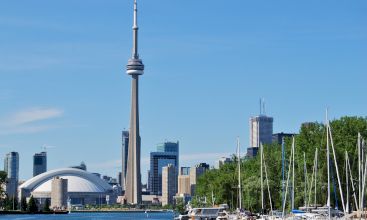
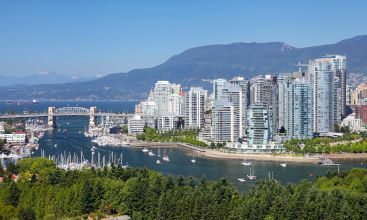
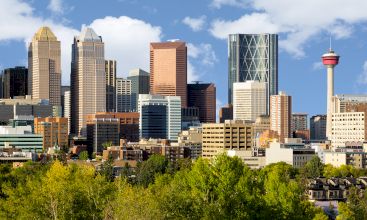
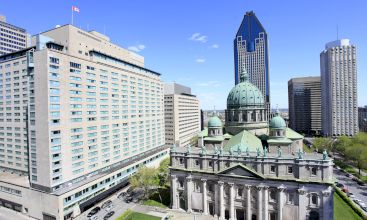
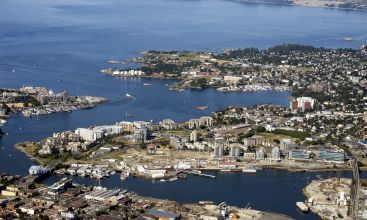
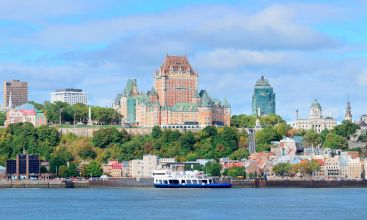
Popular rental locations in Canada
-
Car Hire Toronto Pearson International AirportFrom
£ 13 /day -
Car Hire Vancouver International AirportFrom
£ 13 /day -
Car Hire Calgary International AirportFrom
£ 16 /day -
Car Hire Montreal Trudeau AirportFrom
£ 18 /day -
Car Hire Toronto Union StationFrom
£ 40 /day -
Car Hire Jasper Rail Station
-
Car Hire Saint John Airport
-
Car Hire Charlottetown Airport

When to book a rental car in Canada
Canada - When is the most affordable time to rent a mini class car?
At this destination (Canada), October is the most affordable time to rent a mini class car with an average daily rate of
Canada - When is the most affordable time to rent a economy class car?
At this destination (Canada), October is the most affordable time to rent a economy class car with an average daily rate of
Canada - When is the most affordable time to rent a compact class car?
At this destination (Canada), October is the most affordable time to rent a compact class car with an average daily rate of
Canada - When is the most affordable time to rent an intermediate class car?
At this destination (Canada), March is the most affordable time to rent a intermediate class car with an average daily rate of
Canada - When is the most affordable time to rent a standard class car?
At this destination (Canada), March is the most affordable time to rent a standard class car with an average daily rate of
Canada - When is the most affordable time to rent a full-size car?
At this destination (Canada), November is the most affordable time to rent a full-size class car with an average daily rate of
Canada - When is the most affordable time to rent a luxury car?
At this destination (Canada), October is the most affordable time to rent a luxury class car with an average daily rate of
Canada - When is the most affordable time to rent a SUV?
At this destination (Canada), October is the most affordable time to rent an SUV with an average daily rate of
Canada - When is the most affordable time to rent a MPV?
At this destination (Canada), January is the most affordable time to rent an mpv with an average daily rate of
Canada - When is the most affordable time to rent a minivan?
At this destination (Canada), February is the most affordable time to rent a minibus with an average daily rate of
Canada - When is the most affordable time to rent a sports car?
At this destination (Canada), November is the most affordable time to rent a sports car with an average daily rate of
Canada - When is the most affordable time to rent a convertible?
At this destination (Canada), November is the most affordable time to rent a convertible with an average daily rate of
Canada - When is the most affordable time to rent a delivery van?
At this destination (Canada), October is the most affordable time to rent a van with an average daily rate of
Car rental locations in Canada
Carrentals.co.uk compares rental car prices at the following destinations

Canada Guide
Canada is best explored by rental car. Carrentals.co.uk has over 263 pick-up locations in Canada. This means there is always a pick-up location close to your destination.
Most popular car hire locations in Canada
Driving
As one of the planet’s largest countries, Canada presents travellers with enough scenery to last a dozen trips. Stretching between the Pacific and the Atlantic are 13 diverse provinces, from the wilds of British Columbia and Vancouver to the cosmopolitan marvels of French-speaking Quebec and Ontario’s Toronto. The sheer size of Canada almost demands a car to get the most out of any visit.
Driving Tips for Canada
The relatively small population of Canada means that traffic is a rarity except within major cities like Toronto and Vancouver. Most driving will be on scenic country roads and excellent highways that are signed in English and sometimes English and French, but only in French in Quebec. There are some truly remote areas in Canada so always equip your vehicle with spare kit and make sure the mechanics are in tip-top shape.
Driving licences: visitors to Canada may use their valid driving license from their home country unless it is a language other than English. If that is the case, an International Driving Permit is also required.
Which side does Canada drive on: the right.
Speed limits:
Highways and freeways: 60mph (100kph)
Major roads and small highways: 50mph (80kph)
Outside built-up areas: 35-45mph (60-70kph)
Built-up areas: 25-30mph (40-50kph)
School zones: 20-25mph (30-40kph)
Alcohol limits: nine of the 13 provinces have a limit of 0.05 per cent, while the official national level is 0.08 per cent, which is on par with the UK limit. Canada has some of the toughest drink-driving laws in the world, with stiff fines, licence suspension and potential jail time for offenders.
Driving age: each province has its own laws, but most allow solo driving at age 17. To rent a car, the age ranges from 21 to 24 years old depending on supplier.
Seatbelts: are required to be worn by all passengers at all times. Infants must be restrained in a front-facing safety seat, while young children must sit in a special booster seat often until age nine. The exact ages for child seating varies with each province, so check online.
Mobile phones and GPS: using either a mobile phone or GPS device while driving is prohibited in Canada and carries a hefty fine. Drivers are allowed to use hands-free kits with their mobile phone when driving, but should enter all GPS information prior to setting off.
Cost of fuel in Canada: around half the price per litre for petrol or diesel compared to costs in the UK.
Car hire and fuel payment: major credit cards are typically accepted at all petrol stations though some provinces in Canada require fuel payment up front before they turn on the pump. Car hire companies require a credit card in the renter’s name to pre-book a vehicle, but cash or credit can be used for the actual payment.
Insurance: Canadian law requires third-party insurance, which is included in the cost of the rental car. Additional cover is recommended by purchasing collision damage waiver.
Traffic and parking: parking on Canadian city streets is tightly controlled, so always check for signs or curb markings that indicate if parking is allowed. A safer bet in large cities is to follow the green ‘P’ signs to one of the municipal car parks. Traffic congestion in Canada is limited to major cities like Toronto and Vancouver during rush hours. The rest of the country is a real pleasure to drive though rough winter weather can make road conditions dangerous.
Transport
Trains
The train is a great way to move around Canada as the government-operated VIA Rail connects nearly all of the country’s major cities except Regina and Calgary. If time is not an issue, the scenery will be the reward. Train cars are comfortable, with roomettes, bedrooms, parlour coaches and sleeping cars available. Travel on a luxury line like 'The Canadian' for panoramic dome cars, dining cars and hot showers. Cities in the west of Canada have less frequent service, but the Canrailpass (around £362 low season / £581 peak season) offers 12 days of travel within a 30-day period on the entire rail network. Major cities like Vancouver have inner-city light rail networks, with single rides costing around £1.50 for one zone.
Taxis
Taxi service is good in Canada’s large cities like Toronto, Calgary, Quebec City and Vancouver. Taxis often queue up in front of the big downtown hotels and transport stations, but can be hard to flag down on the street. They all use meters, with fares starting at around £2.00 and increasing by about £1.15 per kilometre travelled.
Buses
Similar to its counterpart in the United States, Greyhound Canada offers new, clean buses. Since the VIA Rail trains only cover the main cities in Canada, the bus is a much more flexible travel option. A standard ticket from Toronto all the way to Vancouver is around £140. Inner-city buses in Canada are also good forms of local transport, particularly in the big cities like Vancouver and Toronto. Single fares are usually around £0.50, with unlimited day passes for £6 available at any station.
Ferries
Canada’s coastal cities such as Vancouver, St John’s and Halifax make good use of their water, with frequent ferries that run between Canada and the US. Vancouver has the most extensive urban water taxi network, the SeaBus, which operates on the same fare basis as its other public transport options at £1.50 a ride. Vancouver and Victoria are major stops for BCFerries from Seattle, Port Angeles and Anacortes in the US, while NFL Ferries runs to Nova Scotia and New Brunswick on the east coast from Maine for around £40 per passenger, with a car surcharge of around £12.50.
Airports
Toronto Pearson International Airport is by far the busiest air hub in Canada, followed by Vancouver International Airport, Montreal-Pierre Elliott Trudeau Airport and Calgary International Airport. Air Canada is the country’s sole national carrier, running direct flights to most international destinations including London-Heathrow. All of the big United States carriers provide good service to Canadian airports. Domestic Canadian flights are limited to Air Canada and WestJet, but cover all cities. A roundtrip flight on low-cost WestJet between Vancouver and Toronto costs about £150.
Explore
Exploring Canada
With 13 unique provinces to explore, Canada offers a lifetime of travel adventure. Most experienced visitors will recommend only tackling one province at a time, as each has more than enough attractions to fill an itinerary. Eco-cool Vancouver is the gateway to British Columbia, which offers Canada’s most rugged, wild terrain and outdoor recreation, both along its dramatic coast and in its inland mountains.
Truly intrepid travellers can head north into the remote Yukon Territory for a true adventure. British Columbia’s neighbour is Alberta, home to the Canadian Rockies and some of the planet’s most sublime alpine scenery around Banff National Park and Waterton-Glacier International Peak Park. While the greatest skiing is to the west at Whistler Blackcomb, Alberta’s mountains are prime territory for backcountry adventure of the highest caliber.
British and European visitors typically arrive in Toronto, the main gateway and most cosmopolitan city in Canada. Its province, Ontario, is littered with scenic lakes and natural wonders like Niagara Falls. This area is quintessential provincial Canada at its finestâfriendly folks, small towns and their lake cottages.
Then there’s French-speaking Quebec. Somehow this province decided to remain French, and thank goodness because its UNESCO historic cities of Quebec City and Montreal are absolutely magical places, more reminiscent of Europe than North America.
And don’t forget the Maritimes. Tucked into the far eastern corner of Canada, these five provinces including Nova Scotia, Newfoundland and Labrador are some of the coolest, most authentic and off-track travel destinations in North America. From Gros Morne National Park to seafaring Halifax, this is a seriously exciting place to drive around.
Our Travel Editor’s Recommended Drives
Soak in the Rockies – start in Revelstoke and drive a magical 135-mile journey on the Trans-Canada Highway, passing through some of North America’s most surreal natural mountain scenery before ending at the legendary Lake Louise and its marvelous hotel.
Sea to Sky – British Columbia boasts nothing but dramatic maritime scenery and nature aplenty. Drive this 90-mile section of Route 99, known as the Sea to Sky Highway, between Whistler and Horseshoe Bay for a taste of mountains, fjords and waterfalls galore.
Cabot Trail – Cape Breton Island epitomises the raw beauty of the Maritimes, and this 185-mile stretch of rural road blends timeless hamlets with the rugged scenery of St Lawrence Bay at every bend.
Holidays and Festivals
- New Year’s Day (1 January)
- Canada Day (1 July)
- Easter (March/April)
- Labour Day (first Monday in September)
- Remembrance Day (11 November)
- Thanksgiving (second Monday in October)
- Victoria Day (Monday on or before 24 May)
- Christmas Day (25 December)
- Boxing Day (26 December)
Weather
The world’s second-largest country covers the climate spectrum though in general, the statistics begin in the cool stratum. Since most of the population lives along the extreme southern latitude, most cities experience the same weather. Summers are warm and humid from June to August, with daily highs of around 30°C. Winters tend to be long, cold and snowy. From November through April it can snow, with frequent rain coming in spring and autumn. The finest months in Canada are September and October, when the bugs die, the skies clear and the temperatures hit that dreamy level.
Practical Stuff
Canada Travel Tips
With its Commonwealth ties, Canada attracts British travellers from across The Pond for its wealth of wild outdoor territory and invigorating cities like Quebec City, Toronto and Vancouver. Without a car, it is difficult to see much of anything beyond the city centre, so get prepared with these useful travel tips.
Canada contact numbers
Country Code: (+1)
British High Commission: +1 613 237 1530
Emergency services: 911
Money matters
The local currency is the Canadian dollar (C$). Foreign currency can easily be exchanged at most large bank branches. Major credit cards are readily accepted by most businesses, while travellers’ cheques are best cashed at local banks. ATMs are easy to find and most accept international bank cards though often with a transaction fee.
Health and safety
Most of the health risks in Canada stem from nature. Be prepared with plenty of water and snacks when venturing into the wilderness for a hike. West Nile virus, the mosquito-borne disease, surfaces every summer so always bring mosquito repellent for the outdoors. Most Canadian cities are safe though common sense concerning valuables and night strolls should be maintained.
Fitting in...
Many Canadians descended from British ancestors, so there is a certain familiarity here for travelling Brits. In general, Canadians are legendary for their relaxed, welcoming attitude, so expect a fun trip. In Quebec, it’s another story. This province is totally French in language, custom and attitude. It’s a beautiful, impressive area but be prepared to use what French language skills you have.
Visas for Canada
All citizens of Commonwealth countries like the UK, Australia, New Zealand and Ireland can visit Canada without a pre-arranged visa. An entry stamp valid for a six-month stay is issued upon arrival.
Electricity
Canada’s electricity runs on 110-120 Volts, which means visitors from the UK, Australia and Asia need to bring a transformer for their electrical devices from home. New electronics can use a universal plug adapter that will fit into the North American Type B outlets.
Business hours:
Businesses: 09:00 to 17:00, Monday to Friday
Government offices: 09:00 to 17:00, Monday to Friday
Shops: 10:00 to 21:00, Monday to Friday; 09:30 to 18:00, Saturday; noon to 17:00, Sunday
Banks: 10:00 to 16:30, Monday to Thursday 10:00 to 17:00, Friday
Helpful phrases:
Loonie: A C$1 coin
Toonie: A C$2 coin
Two-four: A case of 24 beers
Eh?: Isn’t that right?
Pop: A soda drink
Canuck: A Canadian person
First Nations: Native Americans
Washroom: Toilet
Runners: Trainers
Practical information
-
CurrencyCanadian dollar
-
Driving directionRight
-
City speed limit50 km/h
-
Freeway speed limit50 - 100 km/h
-
LanguageEnglish, French
-
Popular car categoryIntermediate
What most people want to know
The following questions and answers are a selection of the most popular questions. If you do not find the answer to your question, have a look at the Frequently Asked Questions page or contact us.
- National Car Rental
- Enterprise
- Alamo
- Green Motion
- Dollar Rent a Car
- Sixt
- Avis
- Thrifty
- Discount
- Hertz
- Budget
- Europcar
- Keddy By Europcar
- Routes
- Fox Rent A Car
- ACE Rent A Car
- Nextcar
- Economy Rent a Car
- ADA
- NÜ Car Rentals
- Payless Car Rental
- SurPrice car rentals
- Mex Rent a Car
- U-Save Auto Rental
- Carwiz rent a car
- Rent a car
- Island Car Rentals
- Peel
- Economy
- Right Cars
- Zezgo